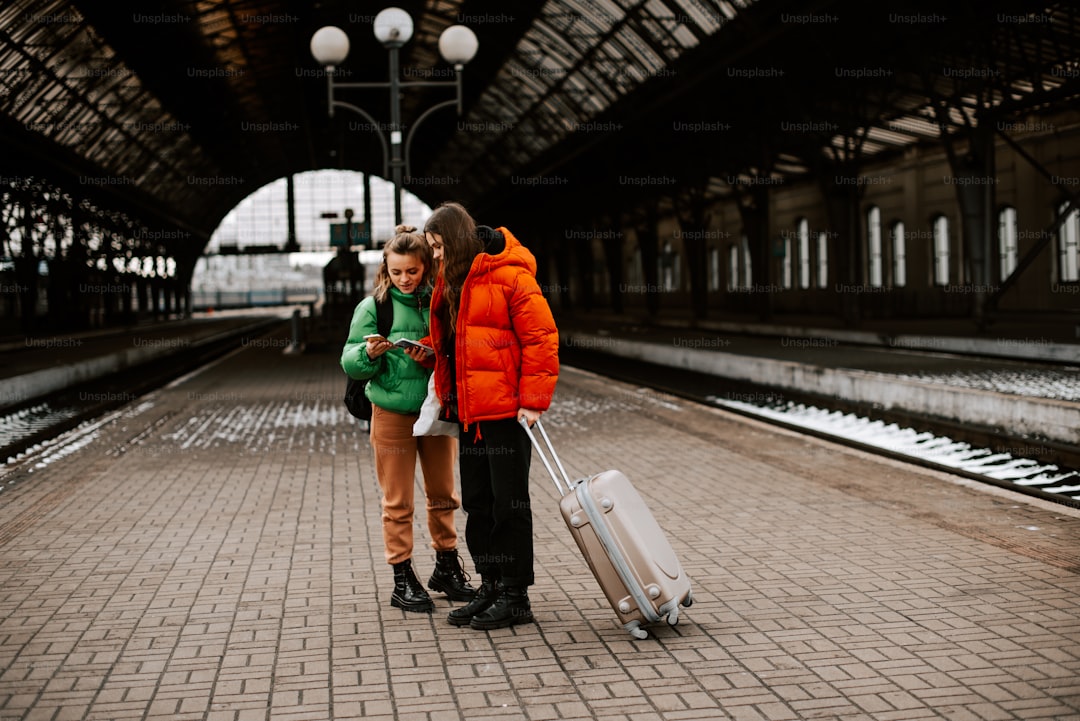Unlocking the Nomad Lifestyle With Curated Guides and Practical Resources

Introduction
The nomadic way of life promises freedom, adventure and the chance to work from anywhere on the planet. Yet the reality of constant movement can feel overwhelming when you are trying to find reliable Wi‑Fi, stay productive, manage finances and keep your mental health in check. The difference between a stressful drift and a purposeful journey often comes down to the resources you rely on. Curated guides, hand‑picked apps, insightful books and inspiring podcasts give you a roadmap that turns uncertainty into confidence.
In this article we will explore the most effective resources for digital nomads, explain how to integrate them into daily routines, and provide practical steps to build a personal library that grows with you. Whether you are just packing your first backpack or you have been hopping continents for years, the tools and recommendations below will help you unlock the full potential of the nomad lifestyle.
The Power of Curated Guides
A curated guide is more than a simple list. It is a collection of resources that have been tested, compared and organized around a specific need. When you rely on a random internet search you may encounter outdated apps, biased reviews or information that does not match your unique circumstances. Curated guides cut through the noise by:
- Highlighting only those tools that have proven reliability and community endorsement.
- Grouping resources by function, making it easy to find what you need at any moment.
- Providing context, such as pricing models, platform compatibility and common pitfalls.
The result is a faster onboarding experience, fewer wasted subscriptions and a clearer sense of direction. For nomads, whose time is often split between travel logistics and work deliverables, having a trusted reference point can mean the difference between a seamless transition to a new city and a scramble for basic necessities.
Essential Apps for the Digital Nomad
Connectivity and Internet
Staying online is the lifeblood of remote work. Below are the top apps that help you locate, test and secure internet connections wherever you go.
- Speedtest by Ookla – Quickly measure download and upload speeds, latency and jitter. Run a test before committing to a coworking space or a short‑term rental.
- Wi‑Fi Finder – Offers crowdsourced maps of free and paid Wi‑Fi hotspots in major cities. Use the filter to see only venues that support video calls.
- VPN Unlimited – Provides encrypted tunnels to protect data on public networks. Choose a provider with a large server network to avoid speed throttling.
Productivity and Task Management
Keeping projects on track while moving across time zones requires robust task management.
- Todoist – Simple, cross‑platform to‑do list with natural language input. Set recurring tasks such as “pay credit card bill on the 5th”.
- Notion – All‑in‑one workspace for notes, databases and project planning. Templates created by other nomads can be duplicated and customized.
- Focus@Will – Music streaming service designed to boost concentration. Pair it with the Pomodoro technique for short, intense work bursts.
Finance and Budgeting
Managing money on the road involves multiple currencies, varying banking regulations and the need for quick expense tracking.
- Wise (formerly TransferWise) – Low‑cost international transfers and multi‑currency accounts. Use the debit card for everyday purchases to avoid hidden fees.
- Currency Converter Plus – Real‑time exchange rates, offline mode and historical charts. Helpful when negotiating rent in a foreign market.
- YNAB (You Need A Budget) – Budgeting framework that forces you to allocate every dollar before it is spent. The mobile app syncs automatically with the desktop version.
Travel Planning and Accommodation
From finding a cheap flight to securing a comfortable long‑term stay, these apps streamline the logistics.
- Skyscanner – Flexible date searches, price alerts and “everywhere” destination option for spontaneous trips.
- Airbnb – Filter for “monthly stays” and “instant book” to reduce waiting time. Look for hosts with verified IDs for added security.
- Nomad List – Community‑driven database of cities ranked by cost of living, internet speed and safety. Use the built‑in calculator to estimate monthly expenses.
Health and Well‑Being
Physical and mental health can suffer when routines are disrupted. The following apps help maintain balance.
- Headspace – Guided meditation sessions ranging from 5‑minute stress relief to full 30‑minute courses on sleep.
- MyFitnessPal – Food diary with a massive database of international dishes. Track macros to stay on track despite changing cuisines.
- First Aid by Red Cross – Offline reference for emergency medical procedures, useful when local healthcare is limited.
Must Read Books
Reading provides deeper insights that apps cannot deliver. The books listed here have become staples for many nomads, covering mindset, logistics and long‑term sustainability.
- “The 4‑Hour Workweek” by Timothy Ferriss – Classic guide to building automated income streams and escaping the traditional office model. Ferriss shares practical steps for outsourcing, mini‑retirements and lifestyle design.
- “Vagabonding” by Rolf Potts – Philosophical treatise on long‑term travel as a purposeful choice rather than a vacation. Potts emphasizes simplicity, slow travel and the importance of personal narrative.
- “Digital Nomad Handbook” by Lonely Planet – Comprehensive reference covering visas, insurance, coworking spaces and cultural etiquette across continents. Updated editions include new regulations post‑COVID.
- “The Art of Non‑Conformity” by Chris Guillebeau – Encourages readers to pursue unconventional paths, create value on their own terms and build a life of autonomy.
- “Remote: Office Not Required” by Jason Fried and David Heinemeier Hansson – Explores the benefits of remote work from a business perspective, offering actionable advice for both employees and managers.
When selecting a book, consider your current challenges. If you struggle with income stability, Ferriss and Guillebeau are essential. For visa complexities, the Lonely Planet guide is a must. Pair reading with note‑taking in Notion to turn insights into actionable checklists.
Podcasts that Keep You Inspired
Audio content is perfect for nomads who spend hours commuting, walking city streets or working in coworking spaces. These podcasts deliver interviews, tips and stories that fuel motivation.
- “The Nomad Podcast” – Hosts interview seasoned travelers about budgeting hacks, remote job hunting and cultural immersion. Episodes often include downloadable resource sheets.
- “Travel With Purpose” – Focuses on sustainable travel, ethical tourism and ways to give back to host communities. Ideal for nomads who want their journeys to have a positive impact.
- “Side Hustle School” – Daily 10‑minute episodes that showcase real‑world side‑hustle ideas, many of which can be launched from a laptop abroad.
- “The Tim Ferriss Show” – In‑depth conversations with high‑performers across industries. Ferriss extracts tools and routines that listeners can adapt to nomadic life.
- “Remote Work Podcast” – Explores trends in remote employment, employer expectations and emerging technologies that shape the future of work.
Listen at 1.5× speed if you need to absorb more content in limited time, and use a note‑taking app to capture actionable ideas.
Tools That Simplify the Journey
Beyond apps, hardware and services play a critical role in ensuring a smooth nomadic experience.
- Portable Power Bank (30,000 mAh) – Guarantees device charging during long train rides or remote work sessions without reliable outlets. Look for models with USB‑C Power Delivery for fast laptop charging.
- Travel Router – Turns hotel Wi‑Fi into a private network, adds Ethernet ports and can boost signal strength. Some routers support VPN configuration for extra security.
- Noise‑Cancelling Headphones – Essential for focusing in noisy cafés or shared accommodations. Models with Bluetooth connectivity reduce cable clutter.
- International SIM Card (e.g., OneSimCard) – Provides data coverage in over 200 countries with a single plan, eliminating the need to purchase local SIMs constantly.
- Cloud Storage (Google Drive, Dropbox, pCloud) – Keep important files accessible from any device. Use version history to protect against accidental overwrites while traveling.
Investing in reliable hardware reduces daily friction and lets you focus on creating value rather than troubleshooting technical issues.
How to Build Your Personal Resource Library
Creating a library that evolves with you is a proactive step toward long‑term success. Follow these steps to assemble, organize and maintain your collection.
- Identify Core Categories – Start with the major pillars of nomadic life: connectivity, finance, accommodation, productivity, health and personal growth.
- Select a Central Hub – Use a single platform such as Notion or Evernote to store links, notes and summaries. Create a page for each category and tag resources for quick retrieval.
- Add Descriptive Summaries – For each app, book or podcast, write a short paragraph describing its primary benefit, pricing model and any known limitations. This prevents future re‑search.
- Rate and Prioritize – Assign a simple rating (e.g., ★★★) based on personal experience. Highlight the top three resources in each category for fast access.
- Schedule Quarterly Reviews – Technology evolves rapidly. Set a calendar reminder to revisit each category, test new alternatives and retire outdated tools.
- Backup Regularly – Export your Notion workspace or sync your Evernote notebooks to a secondary cloud service. This protects against data loss if a device is stolen or corrupted.
By treating your resource library as a living document, you ensure that each new destination benefits from the lessons learned on previous trips.
Practical Tips for Using These Resources
Even the best tools can be underutilized without proper habits. Below are actionable strategies to integrate resources into everyday workflows.
- Morning Routine Checklist – Start each day by opening your “Daily Dashboard” in Notion. Review tasks, check internet speed with Speedtest and confirm VPN is active.
- Batch Processing – Allocate specific blocks of time for administrative chores such as budgeting in YNAB, booking accommodation in Airbnb, and updating expense logs in Wise. This prevents constant interruptions.
- Offline Mode Preparation – Before entering a region with limited connectivity, download essential podcasts, map areas in Google Maps offline, and sync your Notion pages for offline editing.
- Local Community Leverage – Use Nomad List to find meetups or coworking spaces with a strong community. Engaging with locals can reveal hidden resources like discount grocery stores or reliable laundromats.
- Automation with Zapier – Connect apps such as Todoist and Google Calendar to automatically create events when you add a new task. Automate expense entry from Wise to Google Sheets for effortless tracking.
Implementing these practices turns resource consumption into a seamless part of your nomadic rhythm.
Real World Examples
Case Study: The Two‑Month Bali Sprint
Maria, a freelance graphic designer, decided to spend two months in Bali to focus on a rebranding project for a client. Her resource stack included:
- Connectivity – Speedtest each morning at her villa; switch to a travel router with a local SIM when speeds fell below 15 Mbps.
- Productivity – Notion for project timelines, Todoist for daily deliverables, and Focus@Will for deep work sessions.
- Finance – Wise for receiving client payments in USD, YNAB for tracking daily expenses, and Currency Converter Plus for negotiating a discount on a long‑term villa.
By following a morning checklist, Maria maintained a consistent 6‑hour work window, delivered the project ahead of schedule and saved 20 % on accommodation through early negotiation.
Case Study: The Multi‑City Tech Consultant
Liam, a software consultant, traveled to four cities in three months while juggling client meetings across time zones. His key resources were:
- VPN Unlimited – Ensured secure access to corporate servers regardless of local network restrictions.
- Airbnb “Monthly Stays” filter – Secured 30‑day rentals with weekly cleaning included, reducing the need to find new workspaces each week.
- Headspace – Two short meditation sessions per day helped manage jet lag and maintain focus during late‑night calls.
Liam’s systematic use of tools allowed him to keep a 95 % client satisfaction rate while experiencing diverse cultures.
Staying Safe and Healthy on the Move
Safety considerations are often overlooked when the excitement of travel dominates planning. Below are non‑negotiable measures.
- Digital Security – Always enable two‑factor authentication on banking apps and email accounts. Use a reputable VPN whenever you connect to public Wi‑Fi.
- Travel Insurance – Choose a policy that covers medical emergencies, evacuation and equipment loss. Verify that the provider offers 24‑hour support in multiple languages.
- Health Precautions – Carry a basic first‑aid kit, stay hydrated, and schedule regular virtual check‑ins with a healthcare provider using telemedicine platforms.
- Local Laws Awareness – Research visa requirements, work permit regulations and any restrictions on remote work in each destination. Failure to comply can result in fines or deportation.
- Backup Documents – Store scanned copies of passports, visas and insurance cards in a secure cloud folder. Keep a printed copy in a separate bag for emergencies.
By embedding these safety habits into your routine, you reduce the risk of disruptions that could derail both work and travel plans.
Community and Ongoing Learning
The nomadic journey is a continuous learning curve, and community interaction accelerates growth.
- Online Forums – Join Reddit subreddits such as r/digitalnomad, r/remotejs and city‑specific Discord servers. Participate in weekly “Ask Me Anything” sessions with experienced travelers.
- Local Meetups – Use platforms like Meetup.com to find coworking events, language exchanges or skill‑sharing workshops. Building face‑to‑face connections can lead to collaborations and even new client opportunities.
- Mentorship Programs – Organizations like Nomad Academy pair seasoned nomads with newcomers for a six‑month mentorship. Structured guidance helps avoid common pitfalls and fast‑tracks skill development.
- Continuous Education – Subscribe to newsletters from sites like Remote OK, Hacker Noon or The Remote Life to stay updated on remote‑work trends, visa changes and emerging tools.
Engaging with a community not only provides practical advice but also combats the loneliness that can arise from a constantly shifting environment.
Final Thoughts
Unlocking the nomad lifestyle is less about romanticizing endless travel and more about mastering a set of practical systems. Curated guides give you a shortcut through the endless sea of options, while the right combination of apps, books, podcasts and tools equips you to handle connectivity, finance, health and productivity on the go. By building a personal resource library, establishing disciplined habits and staying connected to a supportive community, you turn the nomadic dream into a sustainable, rewarding reality.
Remember that each journey is unique. Treat the resources presented here as a flexible framework, adapt them to your own needs, and continuously iterate as technology and your personal goals evolve. The world is vast, the possibilities are limitless, and with the right tools in hand, you have the freedom to design a life that moves with you.
Random Posts

Ultimate Guide to the Best Digital Nomad Destinations and Visa Strategies
Discover the top digital nomad hotspots, compare living costs, internet speeds, safety, and community vibes, and master visa hacks to work legally and comfortably from any corner of the globe.
1 month ago

Minimalist Nomad Living Sustainable Travel with Light Packing
Travel light, think small: Minimalist nomad living frees mind, cuts waste and costs, and turns every journey into a sustainable adventure.
3 weeks ago

Travel Smart With Top Resources for Digital Nomads
Discover the essential tools, books, podcasts and courses that help digital nomads stay organized, work efficiently and keep learning on the road, whether you’re just starting out or a seasoned traveler.
1 month ago

Building a Freelance Empire While Traveling the World
Learn how to turn travel into profit by building a solid freelance business: adopt a freedom-first mindset, set up reliable income systems, and use essential tools so you can work from any sunrise without sacrificing stability
1 week ago

How to Build a Minimalist Wardrobe for Nomad Life
Learn how to create a lightweight, versatile wardrobe that fits any climate or culture, cuts pack weight, and frees mental space for the nomad life. Pack less, travel more.
2 months ago
Latest Posts

Essential Software Every Remote Professional Should Use
Master remote work with essential tools: instant messaging like Slack, high definition video calls such as Zoom, and asynchronous voice apps. Streamline communication, stay connected and boost productivity.
1 day ago

Mastering Remote Work Productivity for Digital Nomads and Freelancers
Learn proven habits, tools, and tactics that help digital nomads and freelancers stay focused, deliver quality work, and maintain a sustainable lifestyle while traveling the world.
1 day ago

Tech‑Friendly European Towns Perfect for Remote Living
Discover Europe’s best small towns where fast internet, affordable living and vibrant tech communities let you work remotely while soaking up historic charm, lakeside views or mountain air.
1 day ago